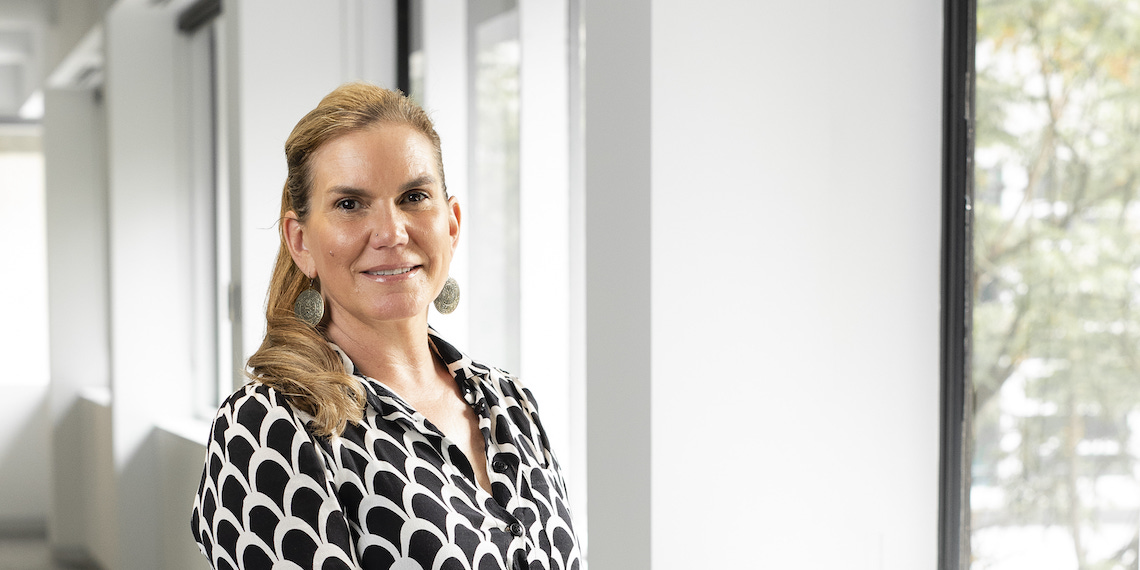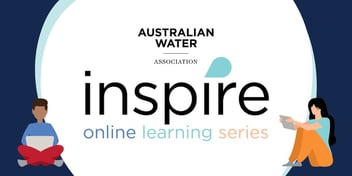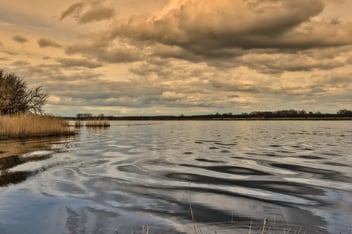Why partnership and trust are key to the reconciliation journey

As Australia prepares to mark National Reconciliation Week, one leading water professional says the water sector needs to partner with Aboriginal and Torres Strait Islander groups, and build genuine trust to work towards reconciliation.
The theme of this year’s National Reconciliation Week is ‘Be the Voice for Generations’, encouraging all Australians to be a voice for reconciliation where we live, work and socialise.
2022 AWA Victorian Water Professional of the Year and Yarra Valley Water (YVW) Aboriginal Partnerships Manager Nina Braid said the theme of this year’s National Reconciliation Week is an important message to reflect on.
“Reconciliation is everybody’s business. It’s not just the 3% Aboriginal population of Australia that can make this work. We need to work together.”
Braid said YVW has learned a lot through its Reconciliation Action Plan (RAP) journey; now on its Stretch RAP, the utility has developed into a partnership-first organisation that follows a ‘listen more, talk less’ approach to working with First Nations partners.
“Our Stretch RAP is about strengthening relationships. We are keen not just to establish relationships, but to grow them, as well. Our goal is to create collaborative opportunities, and ensuring we have created a culturally safe workplace is part of that,” she said.
“As part of our RAP, we’ve set strong procurement targets, including achieving 3% representation of Aboriginal people in our training and employment. In Melbourne, we have an Aboriginal population of about 2.3-2.7%, so our procurement target is quite ambitious.
“However, we also want to look at how we share opportunities for the broader water industry, within our supply chains and so forth. We’re looking for opportunities to sit with and learn from Traditional Custodians as much as we can.”
Partner-first approach
One of the key shifts YVW has embraced in its RAP journey is to move away from the practice of consulting and engaging, and towards a partnership approach.
“Our main service area is Wurundjeri Woi-wurrung Country. We don’t consider Wurundjeri an entity we consult with, they’re not our stakeholder – they’re our partner. It’s a bit of a different approach that we take in how we work with Traditional Custodians,” Braid said.
“I was at Ozwater’23 last week and Dr Brad Moggridge said: “We are sick of being engaged. We want to get married”. YVW is taking the same outlook: we don’t want to engage; we want to partner. Partnership is where we have had great conversations and successes.”
Braid said there is an important differentiation to be made between consulting and partnering.
“Majority of the time, when you consult and engage, you’ve often already made up your mind,” she said.
“On the other hand, partnering involves collaboration, mutual respect and decision-making. When you are partnering, you are coming in at the same level. Going in with a ‘how do you want this to work’ approach is so much better for a relationship than going in and saying ‘this is what we are doing’.”
YVW’s recent Lockerbie Project, which involved excavation of Aboriginal artifacts during the installation of a sewer pipeline between Donnybrook and Beveridge, is a great example of this approach, Braid said.
“When partnering with Wurundjeri, we didn’t look at cultural heritage management planning as a compliance piece. Instead, we saw it as a really great opportunity for us to partner and learn from Wurundjeri,” she said.
“We let the Wurundjeri know we had to do this regulatory piece, but we asked them how they wanted us to do it. We asked them how we could work together so that the Wurundjeri could get the best out of this project for their own cultural practice.
“Wurundjeri Elders got together and they set the research questions for that project, which led and informed our practices. We wanted to go above and beyond to show our dedication to this partnership.”
Building trust
Crucial to partnership, Braid said, is committing to the process of trust building, and understanding that nurturing genuine relationships takes time.
“It’s a long-term process. It’s not something that you do overnight. You need to form long-term relationships, rather than complete consultative processes that last one week,” she said.
“It’s important to recognise that the process is going to be different for each Traditional Owner group and it’s going to take time. It’s the same as working with water corporations – we are all on different journey’s, we are all at different capacities, as well.”
Fundamentally, Braid said building trust is connected to nurturing a safe and respectful workplace culture, which is an area YVW have been focusing on closely.
“We have great partnerships with various Aboriginal gathering places in our service area. We transitioned to hybrid working and had extra office space available, so we offered that space to one of our local gathering places to use while their headquarters underwent a rebuild,” she said.
“Mullum Mullum Indigenous Gathering Place is co-located in our office at the moment. They have quite a big presence at our headquarters. Because of where we are at in our cultural learning journey, we make them feel really welcome.
“There has been an important shift, which flows outwards, too. Aboriginal community members now recommend us as a place to get work experience or train because we are viewed as a culturally safe place.”
Talk less, listen more
Acknowledging that every water company is on its own reconciliation journey, Braid said it’s also important for individuals to listen more, too, particularly as Australia approaches the upcoming referendum.
“It’s important to understand where the Aboriginal person in the room is coming from and let their voices be heard. If there is an Aboriginal voice in the room, listen,” she said.
Braid said she would encourage all water professionals to take the time to reflect on the perspectives and experiences of their Aboriginal and Torres Strait Islander peers.
“Sadly, Aboriginal people are still experiencing outright racism. With all the challenges that Aboriginal people are facing right now, we need to be better. And taking the time to understand what is happening and how that must feel for Traditional Owners is crucial,” she said.
“We know we have a lot more to do on First Nations inclusion and racism, and we’ve only taken small steps so far. So, let’s talk less, listen more to the Aboriginal voices in the room and be a voice for reconciliation so that we can have a better Australia that we can all be proud of.”


